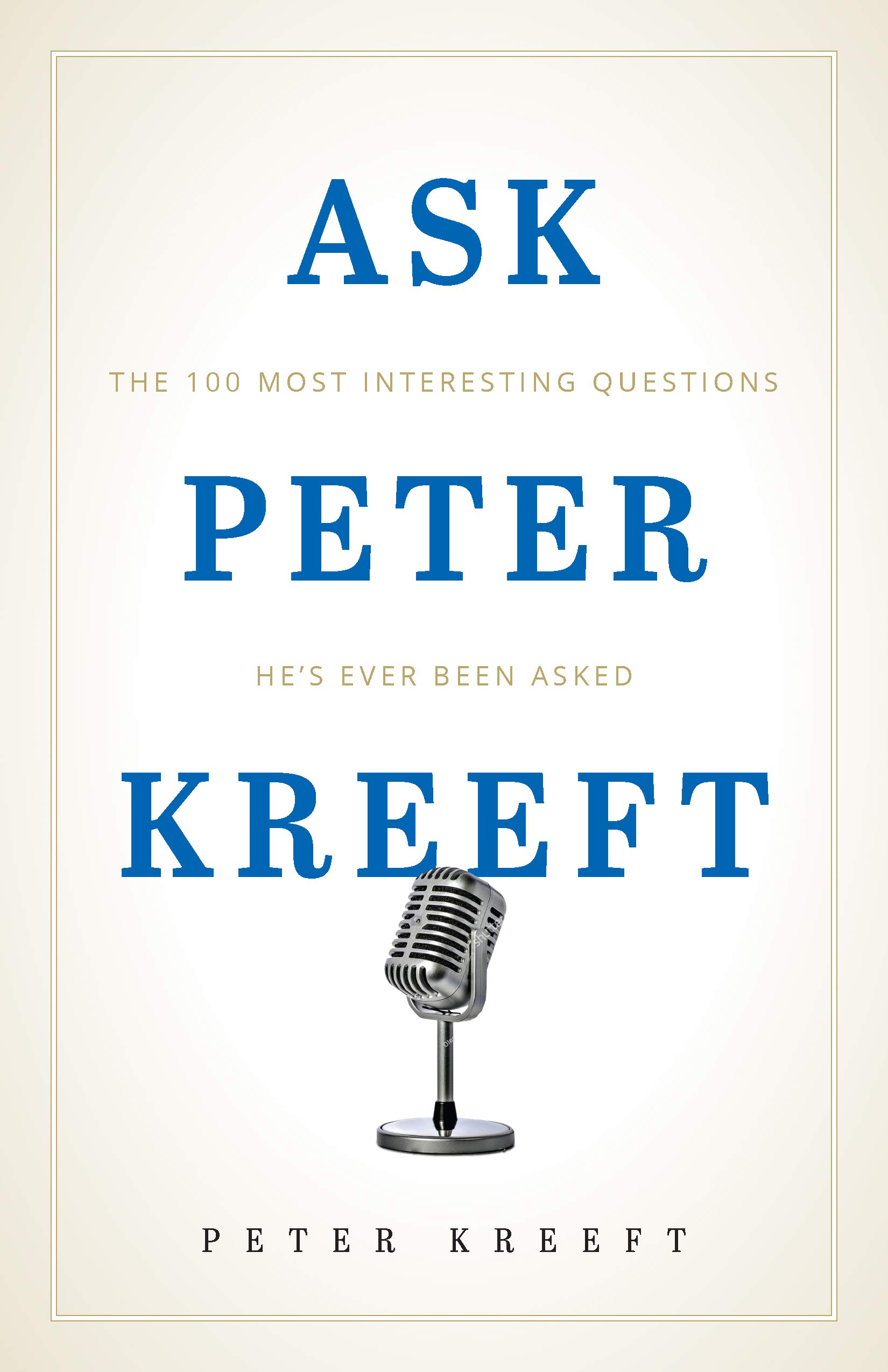Peter Kreeft’s Philosophy in Focus
BOOK PICK: Ask Peter Kreeft

ASK PETER KREEFT:
THE 100 MOST INTERESTING QUESTIONS HE’S EVER BEEN ASKED
By Peter Kreeft
Sophia Press, 2019
305 pages, $15.99
To order: sophiainstitute.com or (800) 888-9344
Peter Kreeft — Boston College philosophy professor, convert to Catholicism and prolific author — is an orthodox writer with verve, full of punchy and memorable lines that make the point about the serious and less serious issues with which he grapples. I mention the “less serious” because, as Kreeft reminds us, God has a sense of humor, we should all laugh regularly, and the book includes 19 of his favorite jokes.
The book consists of questions and answers Kreeft gleaned from his classroom and lectures across America. They range from the origin of religion to how he’d reform a dying parish; from Mary in Catholic versus Protestant eyes to why women can’t be priests; from the immorality of masturbation to the existence of multiverses; from the meaning of marriage and sex to why Catholics don’t believe in reincarnation; and from his favorite books and movies to the value of pets.
Kreeft takes the question-and-answer approach because he thinks it’s interesting: “Hardly ever have I heard a lecture (e.g., a monologue) that did not bore me. Hardly ever have I heard a Q&A (e.g., a dialogue) that did.”

The cover of the book reminds me of another classic Q&A format, Fathers Rumble and Carty’s Radio Replies, a collection of questions in Catholic apologetics that the two priests answered decades ago. Kreeft’s book is not as systematic, which perhaps says something about the lack of logical rigor in public discourse today. That’s not to say that the compass of themes Kreeft covers — philosophy, Catholicism, science, morality, marriage and sex, and the supernatural (to name a few) — don’t hit on those questions that keep recurring in men’s minds.
Kreeft is asked why his thought is so “simplistic.” Well, there’s nothing simplistic about Kreeft’s thought: Anybody who knows anything about philosophy can see how steeped he is in the great philosophers. But Kreeft is not writing an academic treatise: He writes for everyday readers in memorable turns of phrase.
Consider some of these pearls:
Asked why people seem to lack time, he writes: “When you start giving excuses, that’s usually the time to start doing what you’re inventing excuses for not doing. You will never ‘find’ the time to do it. You have to make the time to do it.. And you can do that, because time is your servant, not your master. Don’t reverse masters and slaves. Time is a horse. Ride it; don’t let it ride you.”
On the importance of children, he states: “Children are the fulfillment of life because they are the fulfillment of marriage, and marriage is the fulfillment of love, and love is the fulfillment of life. We don’t matter as much as we think we do, but children matter more than we think they do. In fact, if children don’t matter then none of us matter, because none of us came into the world except as children. [And] because to God we are all children.”
Kreeft’s appeal lies in doing philosophy, not the history of philosophy: He presents an integrated vision of life. My only disagreements are two. He is more cautious than I about where Pope Francis’ “accompaniment” on Eucharistic reception for divorcees is going.
John M. Grondelski writes from Falls Church, Virginia. All views are exclusively his.
- Keywords:
- book picks
- john m. grondelski
- peter kreeft
















